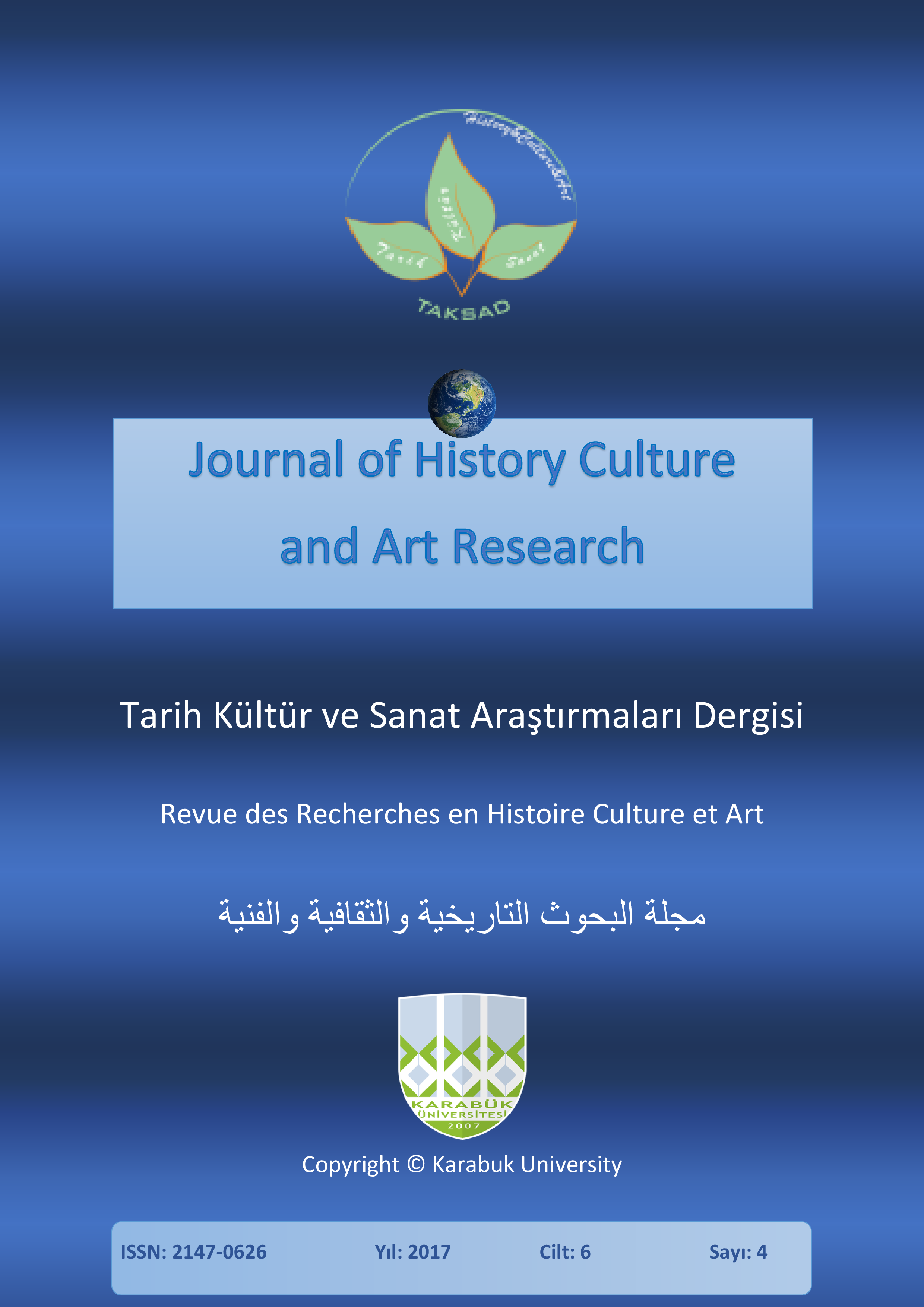Innovative Activity in the Formation of Cross-Cultural Communication and Self-Study Skills in the Pedagogical Higher Educational Establishment
DOI:
https://doi.org/10.7596/taksad.v6i4.1182Anahtar Kelimeler:
Cross-cultural communication- Innovative activity- Students scientific and research work- Self-study skills- Educational environment- Project work.Özet
The field of education in Russia is a priority. It is necessary for modern education to meet the challenges of advancing development of society. A specialist who received Bachelor’s or Master’s degree or a post-graduate should possess professional skills in foreign languages and cross-cultural communication. The development of production and non-production spheres depends on it as well as the general education of our younger generation in particular. Development of cross-cultural communication to a great extent enables the formation of morality, professional development of students at the university. The article analyzes the possibilities of innovative activity in the conditions of the educational environment of pedagogical higher educational establishment for the formation of cross-cultural communication, taking into account the technological and creative approach. The components of the educational environment of pedagogical higher educational establishment are considered as stages: class work, self-cognitive activity in line with the self-education, student’s scientific and research work, practice, extracurricular vocational leisure activity, – in terms of the inclusion of students into cross-cultural communication.
Referanslar
Federal Law "On Education in the Russian Federation" N 273-FL December 29, 2012 with changes in 2015-2016. http://zakon-ob-obrazovanii.ru/
Galustov, A. R. (2013). Theoretical experimental research of formation of future pedagogues’ preparedness for teaching schoolchildren self-study skills: Diss. Abstract PhD (Pedagogy). Moscow.
Ibragimova, I. N. (2015). Environmental education of senior pupils in the course of practical teaching in English. Education in Russia: history, experience, problems, prospects, 2(3).
Papernaya, N. V. (2003). Cross-cultural communication in professional teacher training: Monograph. M.: MSPU.
Papernaya, N. V.; Kavalevich, E. P.; Davydova, K. V. & Filonenko, V. A. (2015). The terms of the development of technologies for monitoring foreign language competence of students of higher education establishment. Bulletin of Adygeya State University. "Pedagogy and Psychology" series. Vol. 4 (169). Maikop: Publishing House of the ASU.
Papernaya, N. V. & Rubtsov, I. N. (2015). Using interactive technologies in teaching a foreign language as a part of the undergraduate educational of non-linguistic orientation. Education in Russia: history, experience, problems, prospects, 2(3).
Pigulevskaya, N. I. (2008). Innovative model of the modern educational process. http://ispu.rufilesSovetRector_9-2008-%D1%81.31-37.pdf
Putin, V. V. (2015). The meeting of the State Council on "The improvement of the educational system in the Russian Federation" December 23, 2015. http://kremlin.ru/events/president/news/51001
Rubtsova, E. T. (2008). Technological culture in the paradigm of modern pedagogical education: Monograph. Armavir: Publishing center of ASPU.
Slastenin, V. A. & Podymova, L. S. (1997). PEDAGOGY: Innovative activity. M.: Publisher Master.
İndir
Yayınlanmış
Nasıl Atıf Yapılır
Sayı
Bölüm
Lisans
Tarih Kültür ve Sanat Araştırmaları Dergisi'nde yayımlanan tüm çalışmalar Creative Commons 4.0 CC-BY lisansı ile lisanslanmıştır.
Bunları yapmakta özgürsünüz:
- Bu eseri her boyut ve formatta paylaşabilir — kopyalayabilir ve çoğaltabilirsiniz.
- Materyalden Adapte et — karıştır, aktar ve eserin üzerine inşa et
- her türlü amaç için, ticari amaç da dahil
Alttaki şartlar altında:
Atıf — uygun bilgiyi, lisansa linki, and ve değişiklik yapıldıysa değişiklik bilgisinivermelisiniz. Sizi veya kullanımınızı lisansörün onayladığı bilgisini içermemek kaydıyla, size uygun şekilde bu işlemleri gerçekleştirebilirsiniz.
AynıLisanslaPaylaş — Eğer materyali karıştırdınızsa, aktardınızsa ya da materyalin üzerine çalıştınızsa, ancak aynı lisans ile dağıtabilirsiniz.
- Ek sınırlamalar yoktur — Lisansın izin verdiği hakları başkaları üzerinde kanunlarla ya da teknolojiyikullanarak sınırlayamazsınız.







